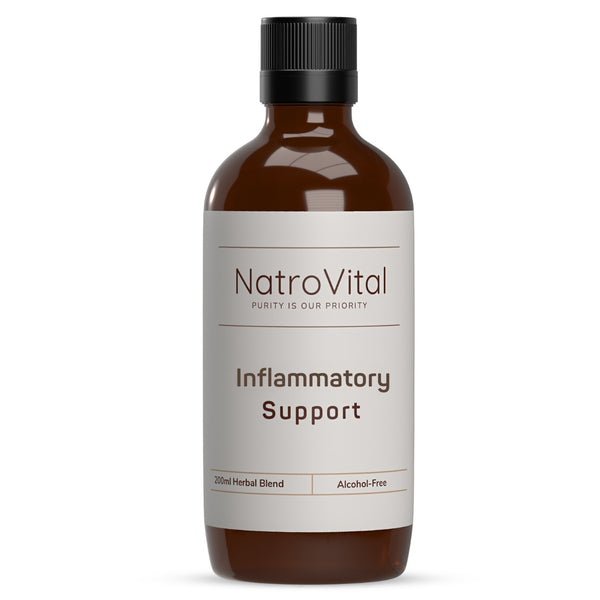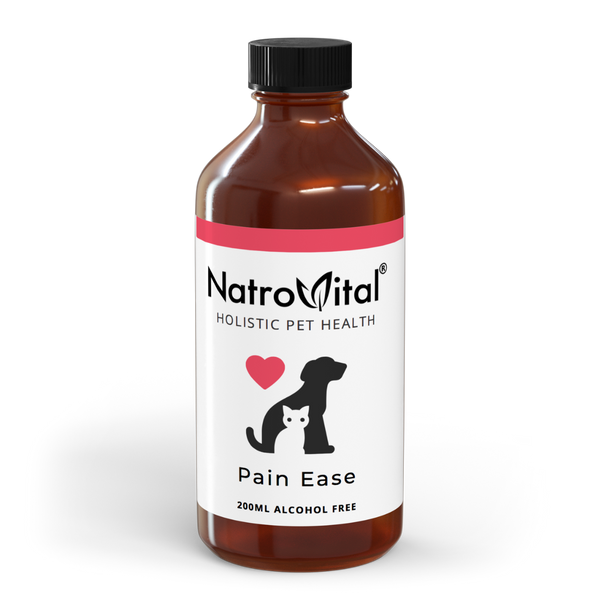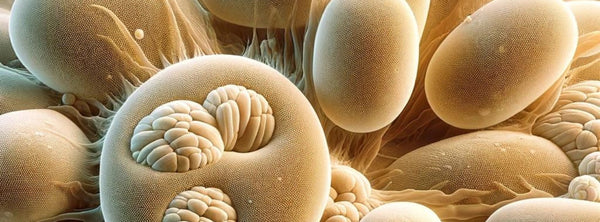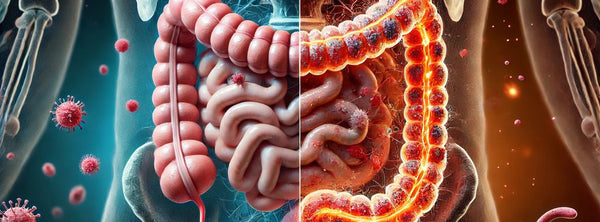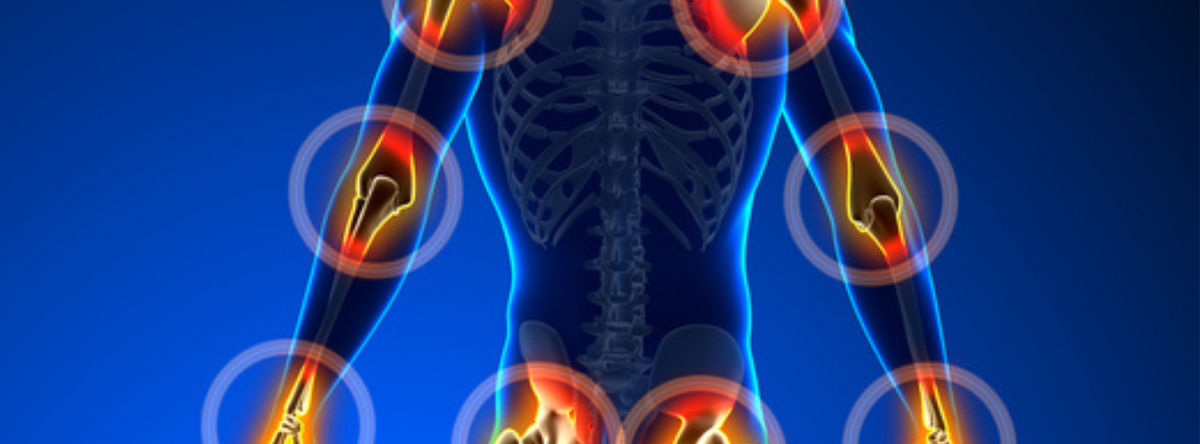
What is Inflammation?
Inflammation is categorised into good and bad Inflammation and acute and chronic Inflammation.
Good Inflammation occurs in response to a viral or bacterial infection or an injury. The immune system sends white blood cells to fight an infection or heal the injured area. As white blood cells pile into the site, the area becomes red and swollen, which can be painful as the body fights the infection or immobilises an injury.
Acute Inflammation allows the body to heal and becomes stronger. It is associated with good Inflammation, injury, and viral or bacterial infection and is short-term, generally lasting two weeks or less.
Bad Inflammation occurs when the immune system is stimulated but shouldn't be. Triggers of bad Inflammation are exposure to toxic chemicals and heavy metals or causes such as chronic stress, auto-immune disorders, and obesity. These conditions continue to overstimulate the immune response resulting in long-term Inflammation. They can lead to health problems such as arthritis, dementia, allergies, Alzheimer's disease, diabetes, cancer, heart disease and depression.
Chronic Inflammation is slow long-term Inflammation lasting in the body for months or years. Chronic Inflammation is associated with bad Inflammation and is linked to over 90% of all diseases.
10 Common Causes of Chronic Inflammation
In our clinic, we see many patients suffering from varying degrees of inflammation. Below is an infographic showing the most common causes. If you study the list, you will see that there is a lot a person can do by themselves to reduce inflammation.

Standard Western Diet - Sadly, the western diet is rich in refined carbohydrates, sugars, alcohol, artificial preservatives, flavours and colourings, with minimal fruits and vegetables, which starves the body of essential anti-inflammatory nutrients. This type of diet, over time, tilts the immune system to become pro-inflammatory, bypassing the anti-inflammatory safeguards the body has in place. When inflammation is allowed to run unchecked in the body, it destroys tissue, suppresses immune function even further and allows the disease to take hold, especially where our body is weak.
Chronic Stress - Our bodies are not designed to live in a constant state of stress. When we are under stress, our body goes into a flight or fight response, which causes an increase in adrenaline and cortisol. Both are important in the short term because they keep us out of harm's way. Prolonged activation of adrenaline and cortisol lets the body know that the emergency is still happening; the body, in turn, suppresses all non-essential (in an emergency) functions, including immune and digestive functions. A suppressed immune system cannot combat the pro-inflammatory mediators, nor can the digestive system adequately absorb nutrients from the foods we eat. In addition, cortisol increases the release of glucose, suppresses insulin and narrows the arteries, making the heart work harder.
Dysbiosis - Dysbiosis is the overgrowth of harmful organisms in the digestive tract compared to beneficial ones. Many factors can cause Dysbiosis, including;
- A sugar and refined carbohydrate-rich diet, AKA the standard western diet. These nutrient-dead, fibre-lacking foods lead to malnourishment of our beneficial gut flora, thus allowing the harmful organisms to take over.
- Stress increases the retention of the harmful gut organisms by increasing their adherence to the gut wall causing Leaky Gut Syndrome and an elevation of toxic by-products that drive up inflammation.
- Medications can have a disastrous effect on the health of beneficial gut bacteria. Antibiotics kill the good gut bugs while protein pump inhibitors to treat reflux and metformin for diabetes, plus non-steroidal anti-inflammatory drugs (NSAIDs), including aspirin, ibuprofen, and Mobic, have shown an alter, injure or destroy the beneficial gut flora. In addition, statin drugs used to treat cholesterol and antipsychotic medications also modify and reduce the good guys. [1]
- Alcohol and Environmental Toxins like medical drugs also alter the composition of gut organisms favouring the more harmful inflammation-creating varieties over the good guys.
Leaky Gut Syndrome - Is a condition in which microscopic holes appear in the intestinal wall. These holes occur for many reasons including;
- Western diet does not provide enough nutrients to allow the body to maintain gut integrity.
- Dysbiosis the overgrowth of harmful gut organisms that destroy intestinal cell structure and integrity.
- Stress increases harmful gut bacteria's ability to adhere to the intestinal wall, further increasing their destructive capabilities. In addition, stress causes the hypothalamus to release the corticotropin-releasing hormone, which breaks down tight gap proteins that hold the intestinal cells together.[2]
- Medication Various medications, including antibiotics, Non-Steroidal Anti-Inflammatory Drugs (NSAIDs) (Aspirin, ibuprofen, Mobic), Cortisone Medication (prednisone, Dexamethasone) and the Contraceptive Pill, can destroy the tight gap junctions, kill or alter the beneficial gut bacteria and increase Dysbiosis.
Poor Sleeping Habits - leads the body to produce excess amounts of inflammatory markers, including cytokines, Interleukin 6 and C-Reactive Protein. A standard theory as to why this happens is that when we sleep, our blood vessels relax, and blood pressure drops. If we don't sleep, our constricted blood vessels produce these inflammatory molecules.
Improper Liver Detoxification - One of the liver's prominent roles is to remove toxins and waste from the bloodstream and move them to the intestines or kidneys for elimination. Toxins enter the liver and are attached to antioxidants, rendering them harmless. Various pathways eliminate the toxins depending on their composition. Toxins that are not detoxified spill out from the liver into the bloodstream, which affects the immune system and creates pro-inflammatory cells. Inflammation occurs if, due to the diet, there are low levels of antioxidants (antioxidants extinguish the inflammatory fire) or the detoxification pathways are clogged or not working correctly.
Excess Alcohol Consumption - Many know alcohol harms the liver and impedes its ability to detoxify correctly, especially binge or chronic drinking. Many may not know the other effects alcohol has on the body; it increases inflammation.
- Dysbiosis - Alcohol upsets the balance between good and bad gut bacteria. It destroys or impairs the good guys, thus allowing the harmful organisms to proliferate.
- Leaky Gut Syndrome - Excessive alcohol consumption breaks down the tight gap proteins that hold the intestinal cells together.
- Creates a Pro-Inflammatory Immune System - Alcohol suppresses potent anti-inflammatory immune mediators creating an environment for inflammation and disease to flourish.
- Reduces Antioxidant Levels - The body classifies alcohol as a toxin and is mopped up by antioxidants in the liver and blood. A diet high in alcohol robs the body of antioxidants leading to poor liver function and a growing fire of inflammation.
- Contributes to nutritional deficiencies - Alcohol depletes vitamins essential for proper liver function and detoxification. Without these B-groups vitamins and vitamin C, it is almost impossible for the liver to function normally.
Blood Sugar Imbalances - Our blood sugar levels quickly rise when we eat foods high in sugar or refined carbohydrates (white carbohydrates without fibre). The quick rise of blood sugar is linked to increased inflammatory markers such as C-Reactive Protein. [3] Excess blood sugar is converted by the body to fat, which can lead to obesity. Excess fat, especially around the waist, promotes the production of pro-inflammatory chemicals, further driving up inflammation. [4] People suffering from elevated blood sugar levels have an increased risk of producing Advanced glycation end-product (AGE's), harmful compounds that drive up inflammation causing disease and premature ageing. The body minimises the effects of these AGE's with the help of Antioxidants—the greater the number of Antioxidants available, the less inflammation and premature ageing. [5]
Low Hormone Levels - This may surprise some people, but studies have shown a link between low oestrogen in women and low testosterone in men and an increase in systemic inflammation. [6],[7] This explains why some women, as they go through menopause, experience an increase in joint and muscle stiffness or that men feel more aches and pains as they age.
Environmental Toxins - Exposure to environmental toxins, including recreational and medical drugs, can alter our hormones and change the activity of the immune system making us more inflammatory and allergenic. [8] Unfortunately, toxins and chemicals are everywhere in our environment, and it's hard to get away from them. Our body does its best, and with the aid of antioxidants, it eliminates them through the liver, bowels, skin and kidneys if working efficiently.
Other Causes of Chronic Inflammation
Causative factors mentioned above are not the only causes of chronic inflammation but are what we most commonly see through our clinic. Below is a list of other causes of chronic inflammation.
|
|
|
|
|
|
|
|
|
|
|
|
|
|
|
|
|
|
|
|
|
Everyday Symptoms of Chronic Inflammation
Thankfully our body is always in constant communication with us. When we feel happy, energetic, and on top of the world, it lets us know that all systems are working well and there is smooth sailing ahead. On the flip side, when we feel run down, flat and generally unhappy with the world, it's telling us that 'Huston, we have a problem'. As a general rule, we are not very good at stopping, listening and actioning the correct measures to heal and repair ourselves. Hands up, who at the end of a crappy day or week goes for a wine or beer to help take them away from their discomfort only to find it's still there the next day? Below are some common signs that the body is telling us something is wrong and chronic Inflammation has taken control.
|
|
|
|
|
|
|
|
|
|
|
|
|
|
|
|
|
|
|
|
|
|
|
|
|
|
|
|
|
|
|
|
|
|
|
|
Diseases Caused By Chronic Inflammation
If ignored and positive changes are not implemented, the signs mentioned above and symptoms can quickly progress into something sinister, as seen below by the diseases created by Chronic Inflammation.
|
|
|
|
|
|
|
|
|
|
|
|
|
|
|
|
|
|
|
|
|
|
|
|
|
|
|
|
|
|
|
|
|
|
|
|
|
|
|
|
|
|
|
|
|
|
|
|
|
|
|
|
|
|
|
|
|
|
|
|
|
|
|
|
|
|
|
|
|
|
|
|
|
|
|
|
How To Treat Chronic Inflammation
Treating Chronic Inflammation may seem daunting, but it is not. It just takes patience and the determination to
- Diet - First and foremost, the diet needs to become an anti-inflammatory diet with ample vegetables, fruits, nuts, seeds, wild-caught seafood, small portions of grass-fed meats, whole grains, legumes, pulses and beans. At the same time, reducing or eliminating sugar, alcohol and refined (white) carbohydrates.
- Addressing Underlying Causes - No long-term resolution of Chronic Inflammation can occur unless the underlying causative factors that fan the fire of inflammation are addressed.
- Stress - A little stress in our lives is ok as it keeps us focused, motivated and on top of our game. Chronic or long-term stress is not ok; it acts like petrol exploding on the Chronic Inflammation fire. Breathe deeply, listen to music, meditate, take time for yourself, sing loudly, gently exercise, laugh, appreciate the little things and forgive. These simple steps profoundly affect the nervous system and how our body reacts to stressful situations.
- The importance of a good night's sleep is often overlooked as a way to lower inflammation, reduce stress, normalise the immune function, clean the brain, detoxify and heal the body. Do what you can to ensure you get a good night's sleep. If you have trouble falling asleep or trouble staying asleep these blog links will tell you all you need to know.
- Treat Dysbiosis and Leaky Gut Syndrome - One of the effective treatment strategies is to improve gut health as a toxic gut is a breeding ground for Chronic Inflammation. Generally, Dysbiosis is treated before Leaky Gut as it is crucial to remove harmful inflammatory creating organisms before healing the damage they have caused to the intestinal lining. We have put together a combined treatment protocol to Eliminate Dysbiosis and Heal Leaky Gut; simply click on the link to find out more.
- Boost Liver Function and Detoxification - Implementing Liver Support after healing a Leaky Gut allows the body to effectively lower Chronic Inflammation by removing toxins via the intestines and kidneys, increasing antioxidant levels and lowering inflammatory markers. To help support liver function and detoxification, we recommend the Liver Detox Health Pack
- Blood sugar irregularities - Making the dietary changes mentioned in this article will vastly improve sugar levels. In the clinic, we give our patients BSL Balance to help enhance pancreatic function and normalise blood sugar levels.
- Herbs - Nature's medicine works gently and effectively on multiple levels to reduce pain, swelling, redness, and lower inflammation. Common herbs including turmeric, devils claw, cats claw, ginger and nettle have powerful anti-inflammatory properties. In addition, common spices including cinnamon, chilli, black pepper, cloves and garlic also help lower inflammation. Cooking meals now can open up exciting new tastes and recipes while helping to lower inflammation.
- Omega-3 Fats - Are anti-inflammatory but often lacking from our diet due to the high intake of omega-6 fats. Foods such as seafood, grass-fed meats, organic eggs, flaxseed, hempseed, chia seeds and walnuts are excellent sources of omega-3 fats. Why are these important? For a start, they are essential fats only obtained through our diet; they lower inflammation, and when the diet is lacking, inflammation begins to take hold as the omega-3 fats are unable to counteract the effects of the pro-inflammatory omega-6 fats.
What We Recommend In Clinic To Lower Chronic Inflammation
We recommend the following 3 nutritional supplements to help reduce Chronic Inflammation while improving lifestyle, gut and liver health.
We hope you found this blog '10 Common Causes of Chronic Inflammation' helpful, and if you did, please leave a comment or share on social media.
Thanks and have a great day!
The information in this blog '10 Common Causes of Chronic Inflammation', is general and intended for educational purposes only. We make no claims to diagnose, treat, prevent, alleviate or cure illnesses or diseases with any information or product. We suggest you consult your healthcare professional before undertaking any health treatment for any health issue.
10 Common Causes of Chronic Inflammation References
1) Systematic review: human gut dysbiosis induced by non-antibiotic prescription medications. Q. Le Bastard, G. A. Al-Ghalith, M. Grégoire, G. Chapelet, F. Javaudin, E. Dailly, E. Batard, D. Knights, E. Montassier
(2) 9 Common Causes of Chronic Inflammation Psychological stress and corticotropin-releasing hormone increase intestinal permeability in humans by a mast cell-dependent mechanism. Sjogren's T, van Wanrooy S, Vanheel H, Vanormelingen C, Verschueren S, Houben E, Salim Rasoel S, Tόth J, Holvoet L, Farré R, Van Oudenhove L, Boeckxstaens G, Verbeke K, Tack J.Gut. 2014 Aug;63(8):1293-9. doi: 10.1136/gutjnl-2013-305690. Epub 2013 Oct 23.PMID: 24153250
(2)Relation between a diet with a high glycemic load and plasma concentrations of high-sensitivity C-reactive protein in middle-aged women Simin Liu, JoAnn E Manson, Julie E Buring, Meir J Stampfer, Walter C Willett, Paul M Ridker The American Journal of Clinical Nutrition, Volume 75, Issue 3, March 2002, Pages 492–498, https://doi.org/10.1093/ajcn/75.3.492
(3)Atherosclerosis. 2014 Mar;233(1):104-12. doi: 10.1016/j.atherosclerosis.2013.12.023. Epub 2014 Jan 7.Visceral adipose tissue as a source of inflammation and promoter of atherosclerosis. Nikolaos Alexopoulos, Demosthenes Katritsis, Paolo Raggi. PMID: 24529130 DOI: 10.1016/j.atherosclerosis.2013.12.023
(4)J Gerontol A Biol Sci Med Sci. 2007 Apr;62(4):427-33. doi: 10.1093/gerona/62.4.427. Circulating glycotoxins and dietary advanced glycation endproducts: two links to inflammatory response, oxidative stress, and aging. Jaime Uribarri 1 , Weijing Cai, Melpomeni Peppa, Susan Goodman, Luigi Ferrucci, Gary Striker, Helen Vlassara PMID: 17452738 PMCID: PMC2645629 DOI: 10.1093/gerona/62.4.427
5) Ageing Male. 2019 Jun;22(2):129-140. doi: 10.1080/13685538.2018.1482487. Epub 2018 Jun 21. The relationship between circulating testosterone and inflammatory cytokines in men. Nur-Vaizura Mohamad, Sok Kuan Wong, Wan Nuraini Wan Hasan, James Jam Jolly, Mohd Fozi Nur-Farhana, Soelaiman Ima-Nirwana, Kok-Yong Chin. PMID: 29925283 DOI: 10.1080/13685538.2018.1482487
6 Chronic Inflammation Roma Pahwa; Amandeep Goyal; Ishwarlal Jialal. The complex role of estrogens in inflammation Rainer H Straub. PMID: 17640948 DOI: 10.1210/er.2007-0001
7) Allergy Asthma Immunol Res. 2014 Nov;6(6):478-84. doi: 10.4168/aair.2014.6.6.478. Epub 2014 Oct 15. The effects of environmental toxins on allergic inflammation San-Nan Yang, Chong-Chao Hsieh, Hsuan-Fu Kuo, Min-Sheng Lee, Ming-Yii Huang, Chang-Hung Kuo, Chih-Hsing Hung. PMID: 25374746 PMCID: PMC4214967 DOI: 10.4168/aair.2014.6.6.478

